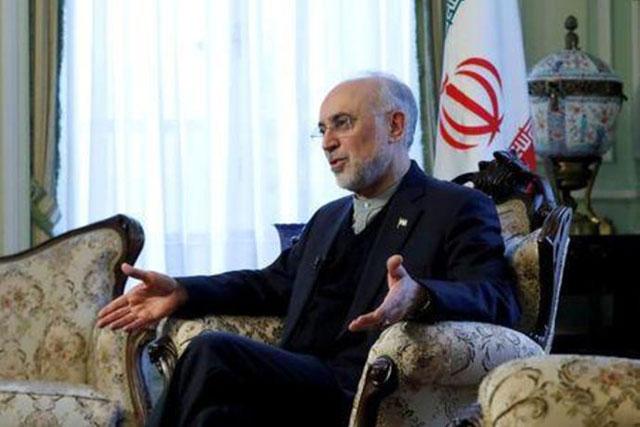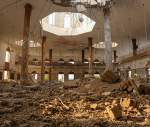You are here
Iran says it is taking initial steps to design reactor fuel
By Reuters - Jan 13,2019 - Last updated at Jan 13,2019

Iran is taking preliminary steps to design uranium fuel with a purity of 20 per cent for reactors instead of having to copy foreign designs, Iran’s nuclear chief said on Sunday (Reuters photo)
DUBAI — Iran is taking preliminary steps to design uranium fuel with a purity of 20 per cent for reactors instead of having to copy foreign designs, Iran’s nuclear chief said on Sunday.
Iran’s 2015 nuclear accord with world powers caps the level to which it is able to enrich uranium to 3.67 per cent purity, well below the 20 per cent it was reaching before the deal, and the roughly 90 per cent that is weapons-grade.
Iran is, however, allowed to produce nuclear fuel under strict conditions that need to be approved by a working group set up by the signatories to the deal. Those conditions include ensuring that the fuel cannot be converted to uranium hexafluoride, the feedstock for centrifuges that enrich uranium.
“We have made such progress in nuclear science and industry that, instead of reverse-engineering and the use of designs by others, we can design new fuel ourselves,” state broadcaster IRIB quoted Ali Akbar Salehi, head of the Atomic Energy Organisation of Iran, as saying.
“Initial measures have been started for the design of modern 20 per cent fuel and we’re on the verge of [achieving] it. This product is different from the previous 20 per cent fuel, and we can supply fuel to any reactor that is built like the Tehran reactor,” Salehi said.
“The Tehran reactor has so far been working with old fuel, but modern fuel can improve efficiency,” he added.
Iranian officials have repeatedly criticised delays in setting up a new European Union payments mechanism for Iranian oil exports, which are hit by US sanctions. But Tehran has stopped short of moves that could jeopardise the accord.
US President Donald Trump pulled out of the accord last year, arguing that it was weak because it did not halt Iran’s development of ballistic missiles or support for armed proxies abroad, and he re-imposed sanctions on Iran’s vital oil export sector.
But Europe sees the nuclear deal as an important element of international security.
The EU and other remaining parties — China and Russia — have tried with limited success to preserve trade incentives for Iran to respect the deal’s nuclear limits under US pressure.
Related Articles
Iran said on Wednesday it had offered ways to address foreign concerns over its underground Fordow uranium enrichment plant, hinting at flexibility on a serious obstacle to a nuclear deal with big powers as a self-imposed July 20 deadline nears.
Iran laid out “red lines” Monday related to its ballistic missile programme, nuclear sites and uranium enrichment ahead of fresh nuclear talks with world powers.
Iran will have no choice but to step up its uranium enrichment if a bill now moving through parliament is approved, even though it has no current need for such highly enriched uranium, its nuclear chief said on Saturday.

















